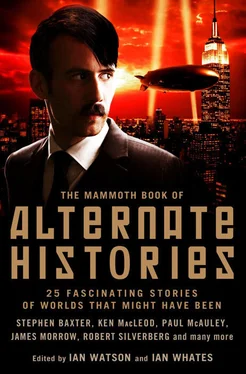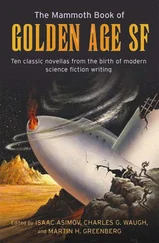“A list from Purser McElroy identifying twenty carpenters, joiners, fitters, bricklayers, and blacksmiths — nine from the second-cabin decks, eleven from steerage,” Captain Smith explained. “Your job is to muster these skilled workers on the boat deck, each man equipped with a mallet and nails from either his own baggage or Mr Hutchinson’s shop. For those who don’t speak English, get Father Montvila and Father Peruschitz to act as interpreters. Lower the workers to the construction site using the electric cranes. Mr Andrews and Mr Hutchinson will be building the machine on the leeward side.”
The Old Man rose and, shuffling to the far end of the table, rested an avuncular hand on his third officer’s epaulet.
“Mr Pitman, I am charging you with provisioning the raft. You will work with Mr Latimer in organizing his three hundred stewards into a special detail. Have them scour the ship for every commodity a man might need were he to find himself stranded in the middle of the North Atlantic: water, wine, beer, cheese, meat, bread, coal, tools, sextants, compasses, small arms. The stewards will load these items into buoyant coffers, setting them afloat near the construction site for later retrieval.”
Captain Smith continued to circumnavigate the table, pausing to clasp the shoulders of his fourth and fifth officers.
“Mr Boxhall and Mr Lowe, you will organize two teams of second-cabin volunteers, supplying each man with an appropriate wrecking or cutting implement. There are at least twenty emergency fire-axes mounted in the companionways. You should also grab all the saws and sledges from the shop, plus hatchets, knives and cleavers from the galleys. Team A, under Mr Boxhall, will chop down every last column, pillar, post and beam for the stanchions, tossing them to the construction crew, along with every bit of rope they can find, yards and yards of it, wire rope, Manila hemp, clothesline, whatever you can steal from the winches, cranes, ladders, bells, laundry rooms and children’s swings. Meanwhile, Team B, commanded by Mr Lowe, will lay hold of twenty thousand square feet of planking for the platform of the raft. Towards this end, Mr Lowe’s volunteers will pillage the promenade decks, dismantle the grand staircase, ravage the panels, and gather together every last door, table and piano lid on board.”
Captain Smith resumed his circuit, stopping behind the chief engineer.
“Mr Bell, your assignment is at once the simplest and the most difficult. For as long as humanly possible, you will keep the steam flowing and the turbines spinning, so our crew and passengers will enjoy heat and electricity whilst assembling Mr Andrews’s ark. Any questions, gentlemen?”
We had dozens of questions, of course, such as, “Have you taken leave of your senses, Captain?” and “Why the bloody hell did you drive us through an ice-field at twenty-two knots?” and “What makes you imagine we can build this preposterous device in only two hours?” But these mysteries were irrelevant to the present crisis, so we kept silent, fired off crisp salutes and set about our duties.
19 April 1912
Lat. 36°18 ‘N, Long. 52°48’ W
Still no sign of the Carpathia, but the mast holds true, the spar remains strong and the sail stays fat. Somehow, through no particular virtue of my own, I’ve managed to get us out of iceberg country. The mercury hovers a full five degrees above freezing.
Yesterday Colonel Astor and Mr Guggenheim convinced Mr Andrews to relocate the Franklin stove from amidships to the forward section. Right now our first-cabin castaways are toasty enough, though by this time tomorrow our coal supply will be exhausted. That said, I’m reasonably confident we’ll see no more deaths from hypothermia, not even in steerage. Optimism prevails aboard the Ada. A cautious optimism, to be sure, optimism guarded by Cerberus himself and a cherub with a flaming sword, but optimism all the same.
I was right about Mr Futrelle knowing the source of “The sea is calm tonight.” It’s from “Dover Beach” by Matthew Arnold. Futrelle has the whole thing memorized. Lord, what a depressing poem. “For the world, which seems to lie before us like a land of dreams, so various, so beautiful, so new, hath really neither joy, nor love, nor light, nor certitude, nor peace, nor help for pain.” Tomorrow I may issue an order banning public poetry recitations aboard the Ada.
When the great ship Titanic went down, the world was neither various and beautiful, nor joyless and violent, but merely very busy. By forty minutes after midnight, against all odds, the twelve pontoons were in the water and lashed to the davits. Mr Boxhall’s second-cabin volunteers forthwith delivered the first load of stanchions, even as Mr Lowe’s group supplied the initial batch of decking material. For the next eighty minutes, the frigid air rang with the din of pounding hammers, the clang of furious axes, the whine of frantic saws and the squeal of ropes locking planks to pontoons, the whole mad chorus interspersed with the rhythmic thumps of lumber being lowered to the construction team, the steady splash, splash, splash of provisions going into the sea, and shouts affirming the logic of our labours: “Stay out of the drink!” “Only the cold can kill us!” “Twenty-eight degrees!” “Carpathia is on the way!” It was all very British, though occasionally the Americans pitched in, and the emigrants proved reasonably diligent as well. I must admit, I can’t imagine any but the English-speaking races constructing and equipping the Ada so efficiently. Possibly the Germans, an admirable people, though I fear their war-mongering Kaiser.
By 2.00 a.m. Captain Smith had successfully shot himself, three-fifths of the platform was nailed down, and the Titanic’ s bridge lay beneath thirty feet of icy water. The stricken liner listed horribly, nearly forty degrees, stern in the air, her triple screws, glazed with ice, lying naked against the vault of heaven. For my command post I’d selected the mesh of guylines securing the dummy funnel, a vantage from which I now beheld a great mass of humanity jammed together on the boat deck: aristocrats, second-cabin passengers, emigrants, officers, engineers, trimmers, stokers, greasers, stewards, stewardesses, musicians, barbers, chefs, cooks, bakers, waiters and scullions, the majority dressed in lifebelts and the warmest clothing they could find. Each frightened man, woman and child held onto the rails and davits for dear life. The sea spilled over the tilted gunwales and rushed across the canted boards.
“The raft!” I screamed from my lofty promontory. “Hurry! Swim!” Soon the other officers — Murdoch, Lightoller, Pitman, Boxhall, Lowe, Moody — took up the cry. “The raft! Hurry! Swim!” “The raft! Hurry! Swim!” “The raft! Hurry! Swim!”
And so they swam for it, or, rather, they splashed, thrashed, pounded, wheeled, kicked and paddled for it. Even the hundreds who spoke no English understood what was required. Heaven be praised, within twelve minutes our entire company managed to migrate from the flooded deck of the Titanic to the sanctuary of Mr Andrews’s machine. Our stalwart ABs pulled scores of women and children from the water, plus many elderly castaways, along with Colonel Astor’s Airedale, Mr Harper’s Pekingese, Mr Daniel’s French bulldog and six other canines. I was the last to come aboard. Glancing around, I saw to my great distress that a dozen lifebelted bodies were not moving, the majority doubtless heart-attack victims, though perhaps a few people had got crushed against the davits or trampled underfoot.
The survivors instinctively sorted themselves by station, with the emigrants gathering at the stern, the second-cabin castaways settling amidships, and our first-cabin passengers assuming their rightful places forward. After cutting the mooring lines, the ABs took up the lifeboat oars and began to stroke furiously. By the grace of Dame Fortune and the hand of Divine Providence, the Ada rode free of the wreck, so that when the great steamer finally snapped, breaking in two abaft the engine room, and began her vertical voyage to the bottom, we observed the whole appalling spectacle from a safe distance.
Читать дальше












